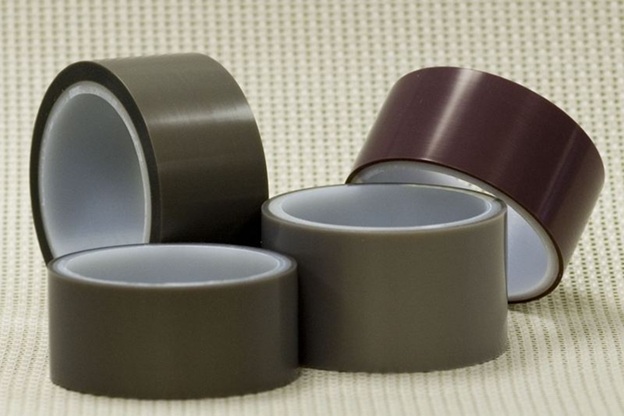Article at a Glance:
- Appropriate agricultural tyres are necessary to improve the efficiency and productivity of farming operations.
- The right set of agricultural tyres provides better traction and performance, reduced soil compaction, increased fuel efficiency, and enhanced crop yield.
As the saying goes, “you are only as strong as your weakest link.” This can be applied to farming operations, where every little factor affects the efficiency and productivity of farming tools. One overlooked factor that can significantly impact modern farming is the choice of agricultural tyres. Proper tyres can dramatically affect farming operations, from optimising fuel efficiency to reducing soil compaction and improving traction.
Benefits of Proper Tyres in Farming Operations
Proper tyres are important for farming and agricultural operations as they enhance grip and reduce slippage on various terrains, resulting in increased efficiency and better control. They also minimise soil compaction, preventing damage to soil structure and erosion and improving crop yield and quality. The optimal rolling resistance of proper agricultural tyres reduces fuel consumption and costs, increasing fuel efficiency. Choosing the right tyres for their equipment helps farmers optimise their farming operations, achieve maximum performance both in the field and on the road, and ultimately minimise crop damage.
Improved Traction and Performance
Enhanced grip and traction on various terrains
Proper tractor tyres are crucial for achieving optimal farming operations. Enhanced grip and traction on various terrains help farmers navigate through wet and muddy fields, uneven grounds, hills, and slopes without slippage or getting stuck. This improves productivity and efficiency, allowing tractors to operate for longer hours without unplanned maintenance. Better grip and traction also increase safety during operations, improving the control and manoeuvrability of the tractor.
Reduced slippage and increased efficiency
Proper agricultural tyres in Australia can greatly benefit farming operations by reducing slippage and increasing efficiency. Choosing wider low-pressure tyres and properly inflating them can improve grip and traction, leading to better control and manoeuvrability. Additionally, tyres with higher flexion help reduce soil compaction, promoting better crop yield and preventing soil erosion. Farmers can enhance productivity and increase crop quality by minimising damage to soil structure. These benefits make investing in proper tyres essential for efficient and effective farming operations.
Better control and manoeuvrability
Proper tyres are crucial for better control and manoeuvrability when operating heavy farm equipment on uneven or sloping terrain. They provide greater stability, precision, and efficiency in planting and cultivating operations, reducing the risk of crop damage and costly repairs due to accidental collisions. Investing in the right set of tyres can significantly enhance the control and manoeuvrability of the farm equipment, saving time and increasing productivity. Therefore, farmers should carefully consider their tyre options to ensure optimal field performance.
Reduced Soil Compaction
Minimised damage to soil structure
Proper tyre selection and management can minimise soil compaction and erosion, enhancing soil health and improving crop yield and quality. Choosing low-pressure options and the correct tyre size for machinery reduces ground pressure and distributes forces into the soil, reducing soil compaction. Reduced soil compaction promotes soil conservation and sustainability by preventing erosion and runoff. By prioritising proper tyre selection and maintenance, farmers can improve efficiency, reduce the farm’s carbon footprint, and ensure their soil’s long-term health and productivity. Investing in the right tyres benefits the environment and the farmer’s bottom line.
Prevention of soil compaction and erosion
Proper tyres in farming help prevent soil compaction and erosion, leading to better crop yields. Low-pressure tyres reduce soil pressure, reducing the depth and intensity of reduction while preventing corrosion. Better grip and traction on various terrains also avoid damage to soil, improving crop quality. Proper tyres enhance fuel efficiency due to optimal rolling resistance, reducing fuel consumption and cost. Good tyres can benefit farmers by preventing soil damage and improving equipment performance and crop yields.
Increased Fuel Efficiency
Proper tyres in farming operations enhance fuel efficiency, reducing fuel consumption and costs. Inflating tyres to their recommended pressure minimises rolling resistance, leading to lower fuel usage. Proper tyres also lead to more prolonged and effective field operations, reducing the need for frequent refuelling that can cause unnecessary downtime. Therefore, selecting the right tyres is crucial in optimising fuel usage, reducing costs, and improving overall profitability in farming operations.
Optimal rolling resistance
That’s right. Optimal rolling resistance is crucial in achieving fuel efficiency and reducing carbon emissions in farming operations. Low Rolling Resistance (LRR) tyres are designed to minimise energy loss, leading to better fuel efficiency and reduced emissions. Proper tyre pressure and size are important factors in optimising rolling resistance.
Reduced fuel consumption and cost
While some reputable tyres may have a standing for fuel efficiency, farmers must consider all available options and choose the tyres that best suit their needs and operations. It’s also important to note that while low tyre pressure can help improve traction in some situations, it can also lead to increased fuel consumption and decreased efficiency in other cases. Therefore, it’s crucial for farmers to regularly check and maintain proper tyre pressure to ensure optimal performance and fuel efficiency. By investing in the right tyres and properly maintaining them, farmers can achieve significant fuel savings and reduce their carbon footprint while improving their bottom line.
Enhanced Crop Yield and Quality
Minimised crop damage during operations
You are right! Proper tyre selection and management can significantly reduce the risk of crop damage during farming operations. Farmers can move their equipment more effectively and avoid damaging crops by improving traction and control. Additionally, reducing soil compaction can help promote healthy plant growth by allowing roots to penetrate through soil layers more easily. This is because plant roots struggle to access water, nutrients and oxygen when soil is compacted.
Improved crop quality due to reduced soil compaction
In addition to reducing soil compaction, proper tyres can improve crop quality by providing better traction and control on various terrains. With enhanced grip and manoeuvrability, farmers can better manage their equipment around crops, minimising damage and ensuring the even distribution of nutrients and water. Furthermore, proper tyres can also help prevent erosion, negatively impacting crop quality by washing away valuable topsoil and nutrients. By investing in proper tyres and reducing soil compaction and erosion, farmers can improve crop quality, increase yields, and ultimately maximise their profitability.
Conclusion
Using proper tyres in farming boosts efficiency and profitability. Better grip, control, and reduced soil compaction improve performance and manoeuvrability. Proper tyres also increase fuel efficiency, lower costs, and promote sustainability. Farmers can achieve greater success by recognising and implementing the benefits of appropriate tyres in their operations.
When it comes to agricultural tyres, it’s important to choose the right type for specific farming needs. Here are some common types of agricultural tyres:
R1 Tyres:
Ideal for dry farming and suitable for muddy or soft terrain. They offer excellent performance and traction in agriculture. Within R1 tyres, there are subcategories such as IF (Increased Flexion) and VF (Very High Flexion) treads, providing additional benefits for specific farming requirements.
R2 Tyres:
Specifically designed for flooded farming, R2 tyres have deeper treads compared to R1 tyres. They are commonly used for rice and cane plantation, where the terrain requires enhanced traction and stability.
R3 Tyres:
R3 tyres are primarily used in lawns and gardens. They have shallow treads to avoid causing damage to the lawn while providing adequate traction. However, they are not suitable for muddy conditions.
Choosing the right agricultural tyre is crucial for achieving optimal performance in farming operations. It’s recommended to consult with a reputable importer, wholesaler, and retailer in Australia who offers a range of high-quality agricultural tyre brands. Some of the recommended brands include BKT, Maxxam, StarMaxx, Alliance, Apollo, Ceat, Linglong, and Forerunner. These brands are known for their durability, performance, and suitability for various agricultural applications.

 Fuel Card Data: The Key to Smarter Fleet Management and Cost Control
Fuel Card Data: The Key to Smarter Fleet Management and Cost Control  Car AC Repair: Diagnosing and Fixing Weak Airflow
Car AC Repair: Diagnosing and Fixing Weak Airflow  How Exotic Car Leasing Works: A Beginner’s Guide
How Exotic Car Leasing Works: A Beginner’s Guide  Red Flags to Watch for at Any Car Dealership
Red Flags to Watch for at Any Car Dealership  PTFE Films in Automotive Wire Harness Protection
PTFE Films in Automotive Wire Harness Protection  How Weather Conditions Affect Car Headlights
How Weather Conditions Affect Car Headlights  Importance of Car Door Inspections During Servicing
Importance of Car Door Inspections During Servicing  Essential Role of Household Battery Backup for OSA Patients and Introducing Jackery Explorer 1000 Plus Portable Power Station
Essential Role of Household Battery Backup for OSA Patients and Introducing Jackery Explorer 1000 Plus Portable Power Station  The Importance of a Spacious Interior in a Modern Family SUV
The Importance of a Spacious Interior in a Modern Family SUV 




